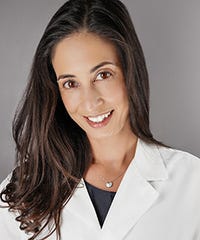July 14, 2021

Whether they're called fraudulent, unproven or expensive urine, dietary supplements frequently fall prey to negative press. Although the full story is usually more complex than "X supplement doesn't work," media outlets make oversimplified conclusions and craft misleading clickbait headlines, generating bad buzz. This leaves natural products retailers to address shoppers' skepticism and set the record straight.
"On social media, negative press travels six times further than positive press does," says Abraham Nabors, second-generation owner and director of education and standards of Mustard Seed Market and Café in Akron, Ohio. "In this day and age, you can be certain people will read negative headlines about supplements and come in to talk to you about them."
To help retailers answer shoppers' efficacy questions and explain supplements' role—accurately, effectively and legally—we asked Nabors plus an integrative physician and a supplements educator to share their best advice.
Supplement educator

EuroPharma Inc. in Green Bay, Wisconsin
Distinguish vitamins and supplements.
Mainstream medical research often says "you're wasting your money on vitamins." Here's the problem: Vitamins are single compounds—A, B, C, D, E and K—but in many consumers' minds, everything sold in a health food store is a vitamin. So, when consumers see negative headlines, they get the message that nothing sold in a health food store works. To combat this, explain to shoppers that most supplements are not vitamins.
Identify appropriate endpoints.
Consumers constantly hear that vitamins don't work or herbs have been disproven—but it's for things they were never intended to do in the first place. To prevent nutrient deficiency syndrome, it has been proven that that supplemental nutrients work. For optimal immune function, it has been proven that without optimal levels of vitamin C on board, the immune system isn't as vigorous. Ask shoppers what they're aiming to achieve and outline realistic expectations.
Highlight flaws in meta-analyses.
Many negative studies on supplements are meta-analyses, where researchers combine the results of several studies to look for trends or efficacy. I don't think these should be used as a research tool for herbs—ever. Unlike, say, ibuprofen, which is a single chemical entity, herbs contain multiple compounds. To accurately compare multiple studies of an herb, researchers would need to control for standardization, absorption, dosage size, study duration and other factors, but they often don't. They'll just pool the results of several studies and conclude that an herb doesn't work, when in reality, one good study may have shown efficacy, but it was diluted by all the low-dose and weird studies.
Retailer

Mustard Seed Market and Café in Akron, Ohio
Identify experiential vs. nonexperiential.
"Will I feel it working?" That's the number-one thing people want to know when determining supplement efficacy, even though it can only be applied to some supplements. With CBD or turmeric, you may notice pain reduction or inflammation support, whereas you're probably not going to feel the effects of vitamin A. It's important to communicate clearly which supplements are in the "feel it" category and which aren't. For those that aren't, to help shoppers understand whether or not they're working, I'm a huge fan of diagnostics. We sell omega-3 fatty acid blood spot tests and vitamin D blood tests. It's powerful when people can see data showing their levels.
Arm staff with facts.
We have to respond to supplement criticism all the time, which is why we need to be more informed than our customers, who trust us to pour over the details and be transparent and factual about what we've learned. The science is complicated, and you have to look at the nuances. Whenever a new hit piece comes out, I research it and develop our official talking points in anticipation of people asking about it. Along with helping individual customers in the aisles, this helps us maintain our brand proposition in the community. If you don't prepare your staff, who knows what their individual perceptions might be, and if they're speaking on behalf of your brand, that can be risky.
Give credence to correlation data.
Regarding the studies suggesting vitamin D is not effective for COVID-19, I tell people we don't have conclusive scientific word yet—but the correlation data blows my mind. When 90% of people dying of COVID-19 are deficient in vitamin D, what's the risk of taking it? As long as you measure and don't go into toxicity, I say there is nothing but benefit to taking vitamin D and getting your levels to the optimal range.
Integrative physician

Palo Alto Medical Foundation's Institute for Health and Healing in San Carlos, California
Explain nutrient optimization.
When explaining what nutrients can do for the body, I use the analogy of an old, abandoned tree that's not doing well. When you give it proper sun, water and compost, the tree inherently knows how to fix itself. You're not telling it how to grow leaves; rather, you're supporting its environment and innate wisdom. It's the same with humans. You are trying to optimize the terrain, and with right supportive terrain—including the proper intake of nutrients. The problem is our soil is now so depleted that it's hard to get enough nutrients from food, so there are many supplements we absolutely need in order to stay healthy in today's world.
Point out study limitations.
When research is done on a single supplement, I tell people it's like fertilizing a tree but giving it only nitrates—of course that won't work! Similarly, when we study the standard American—who is sedentary, eats Big Macs and takes medications that strip them of nutrients—and give them only vitamin D, well, no wonder vitamin D doesn't help. Vitamin D works in concert with other nutrients. It helps the body absorb calcium for bones, but it needs magnesium and vitamin K2 to direct the calcium. So, if vitamin D doesn't have its team, like it doesn't in many studies, then we can't expect much.
Dispel the silver-bullet myth.
In our Western world, we have this notion that every single problem has "one pill to fix the ill." But the body is so much more complex than that. And with so much disease in our bodies in our unhealthy environments, there is rarely a simple fix. Now, that doesn't mean negative studies about supplements should be ignored. Retailers should be upfront about what supplements can and can't do.
About the Author(s)
You May Also Like
.png?width=700&auto=webp&quality=80&disable=upscale)




